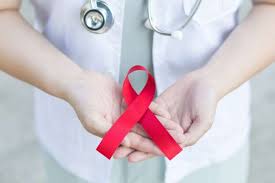Source: thenews.com.pk
Responding to the directives from the Sindh High Court, the provincial health department on Friday notified the constitution of the Sindh HIV/AIDS Control, Treatment and Prevention Commission, which comprises retired judges, doctors from the Pakistan Army and Police Service of Pakistan, lawyers, social workers, experts working in the field of HIV and AIDS treatment in Sindh as well as other provinces of Pakistan.
“…..the competent authority is pleased to revise and notify the Commission for Sindh HIV/AIDS Control, Treatment and Prevention with immediate effect,” said a notification issued by Health Secretary Saeed Ahmed Awan.
The Sindh High Court (SHC) had ordered the provincial government to establish a commission for prevention, control, care, support and treatment of HIV and AIDS and had directed it to produce the notification in the court on September 17, 2019, compelling the health authorities to notify the creation of the commission on Friday, officials said.
Dr Sharaf Ali Shah, a former project director of the Sindh Control Program and renowned physician working in the field of HIV and AIDS treatment in Pakistan, told The News on Friday that a division bench of the SHC comprising Justice Muhammad Ali Mazhar and Justice Faisal Agha had issued these orders in a petition pertaining to implementation of the Sindh HIV and AIDS Control Treatment and Protection Act, 2013.
According to Dr Shah, the petition was filed by various individuals and organisations, including the War Against Rape, Pakistan Association for Mental Health and the Pakistan Institute of Labour, Education & Research, for the implementation of the Sindh HIV and AIDS Control, Treatment and Prevention Act 2013.
“Actually, the Sindh health department had notified a commission earlier, but the majority of its members had refused to be part of it, making it an ineffective body. Now on the directives from the Sindh High Court, they have created the commission comprising people from civil society, including me,” he added.
Health department officials said Dr Majida Rizvi, Dr Bashir Arain, Shabir Shaikh, Gul Muneer Shah, Dr Hussain Bux Memon would be the members of the governing body of the commission, while the working body would consist of Dr Rafiq Khananai, Dr Shobha, Dr Naseem Salahauddin, Dr Fatima Mir, Asif Soomro, Dr Sharaf Ali Shah, Muhammad Raza, Mrs Rubab, Bindia Rana and the program manager of the Sindh AIDS Control Program.
Earlier, the civil society organisations in their petition before the Sindh High Court had submitted that under Section 3 of this act it is responsibility of the Sindh government to implement and enforce this act with certain powers given under the same section 4, which further provides that the government shall within fifteen days from the promulgation of the act by notification establish a commission for prevention, control, care, support and treatment of HIV and AIDS in the province.
The petitioners’ counsel had argued that despite the promulgation of the law in 2013 no commission had been made so far to effectually implement the act. In the previous hearing, the court directed the additional advocate general of Sindh to submit comments and intimate the court as to when the commission would be constituted and submit the data with regard to HIV and AIDS patients.
In response to the petition, the health department furnished a report, which disclosed that a summary had been submitted with the chief minister for the constitution of the commission. Health department officials had sought two months; however, the court had granted two weeks’ time to the department to issue the notification for establishing the commission.
The health department report also revealed that nine centres were functioning for the treatment of AIDS in the province. The registered number of AIDS patients in Sindh is 12,071, while conservative estimates suggest that there are more than 65,000 AIDS patients in the province.
As many as 5,444 adults and 311 children diagnosed with HIV are under treatment in the Civil Hospital Karachi and 300 such patients are being treated in a Lyari hospital.
